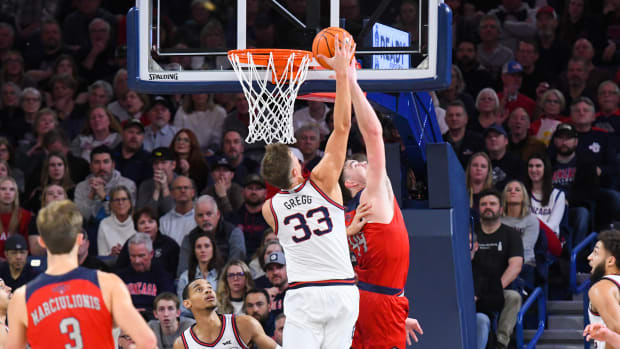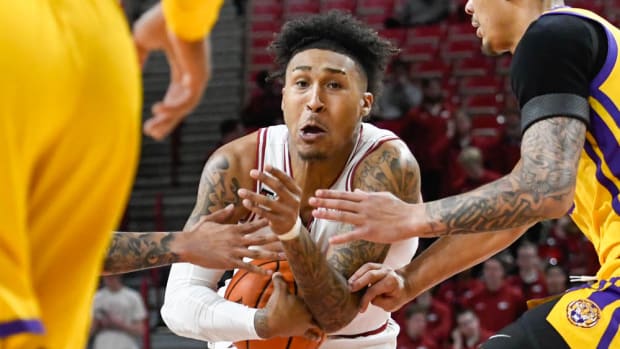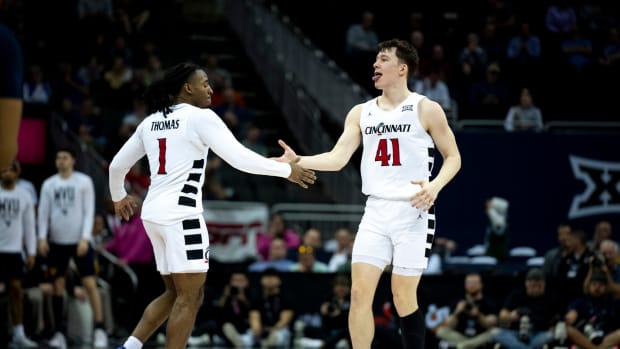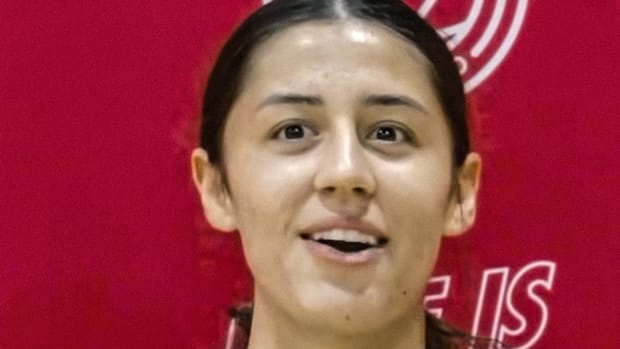Woman Who Alleged Rape by Ex-Michigan State Basketball Players Speaks Publicly
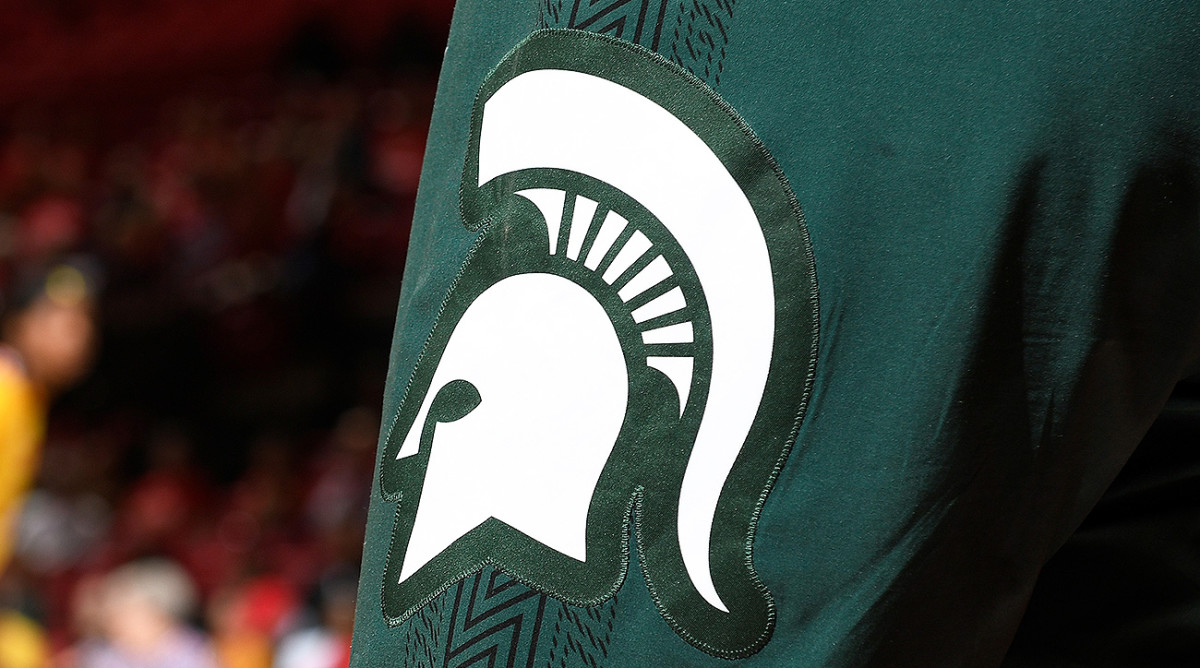
EAST LANSING, Mich. — A Michigan State University student who sued the school after alleging three former men's basketball players gang-raped her in 2015 said at a news conference Thursday that she wants to encourage other "silent survivors" of sexual assault to tell their stories.
Bailey Kowalski, 22, who will graduate in May with a biology degree, held the news conference on the fourth anniversary of the alleged incident. She spoke a day after going public for the first time in a story published by The New York Times.
''This isn't a burden they have to carry on their own,'' she said of other rape victims, as her parents, brother and lawyer looked on inside a hotel meeting room near the East Lansing campus. Kowalksi teared up as she said her decision to file the lawsuit a year ago and go public now was influenced by watching victims of disgraced former university sports doctor Larry Nassar come forward.
"It empowered me to do it," she said.
The suit, in which Kowalski is listed as Jane Doe, says she was 18 on April 12, 2015, when she met the players at an East Lansing bar about a week after the team lost in the Final Four. She was later taken to an off-campus apartment where the players took turns raping her in a bedroom, according to the complaint.
She caught a taxi back to her dorm room and contacted university counseling center staff about a week later. After telling a counselor that basketball players were involved, she said the staff discouraged her from notifying the police.
''I was intimidated, and I was told that I was going to be swimming with some really big fish,'' Kowalski said Thursday. ''I'll never forget that phrase and the immediate feeling of despair and isolation.''
The suit, amended in December, points to past alleged sexual assaults involving MSU athletes, including two separate 2010 incidents in which a total five basketball players allegedly raped women and were not charged or disciplined. It alleges the university violated Title IX requirements and Kowalski's rights by failing to follow normal reporting and investigative procedures when athletes were involved, actively discouraging victims from filing reports and not notifying them of reporting and confidentiality options.
Kowalski said she would have filed a police report if she had known she would not get into trouble for using a fake ID at the bar, and she would have had a rape kit done if not for fears that her parents' insurance would be billed.
The school declined to comment on the suit Thursday, citing the litigation, but last year said she was treated appropriately by counselors and denied that she was discouraged to file a Title IX complaint or to contact the police.
The university opened a Title IX investigation after learning of the suit. The review is ongoing.
"We are committed to listening to survivors who bravely tell us about their experiences so that we can improve our response and help those who seek support in the future," university spokeswoman Emily Gerkin Guerrant said in a statement.

